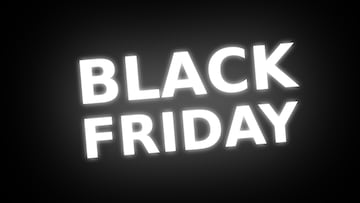Black Friday: origin, history and why is called Black Friday?
The Friday after Thanksgiving has been the busiest shopping day of the year for decades, but where did it begin and why is it really called “Black Friday”?

The story goes that Black Friday is so-called because it’s the day when stores reopen after the Thanksgiving holidays, again becoming profitable and going “into the black”. What you may not know is that there’s a darker significance that is rooted in the 1800′s gold trade and an exhausted police force in Pennsylvania.
Origin of Black Friday
The first recorded use of the term “Black Friday” was in New York 145 years ago, and it has nothing to do with Christmas shopping. Two investors named Jay Gould and Jim Fisk who were president and vice president of the Erie Railroad had a reputation as two of Wall Street’s most ruthless financial masterminds. On Friday 24 September 1869, a months-long plot to rig the gold market came to a head. Gould and Fisk had been driving up the price of gold for weeks, buying up huge reserves of the precious metal, then one day, when President Ulysses Grant caught wise to the scam, he flooded the market with gold causing a colossal stock market crash.
Related:
This day became known as “Black Friday” because the effects were felt in the US economy for years. Thousands of speculators were left financially ruined and at least one committed suicide. Foreign trade ground to a halt while it’s believed that farmers may have been the hardest hit, with many seeing the value of their wheat and corn harvests dip by 50 per cent.
History of Black Friday as we know it
The event Black Friday as we know it, the one which takes place on the Friday after Thanksgiving, is thought to have originated in Philadelphia in the 1950′s or 60′s. Police officers coined the term because the Army-Navy football game that was traditionally played on the Saturday after Thanksgiving caused the city to flood with shoppers and tourists. This lead the police who had to work the day after Thanksgiving to dread it, with its traffic jams and overcrowding of sidewalks and retail stores, not to mention increased shoplifting.
Sales personnel soon caught on to the term, also dreading Black Friday with its chaotic staff-to-shopper ratio, as it was then customary to call in sick the day after Thanksgiving to extend the holiday. The term caught on nationally in reference to a post-Thanksgiving, pre-Christmas shopping frenzy in the 1980′s.
There were efforts made by retailers to convert the name of the day into something more positive, and for a while they pushed “Big Friday” in attempts to garner more favorable public opinion of the event, but it never caught on.
Eventually though, one positive connotation did stick, as more commonly now we link the shopping bonanza with the “red to black” narrative which connotes the surge in cash flow seen by retailers on this day.
Here are some tips to help you find the best deals on this year’s Black Friday.






